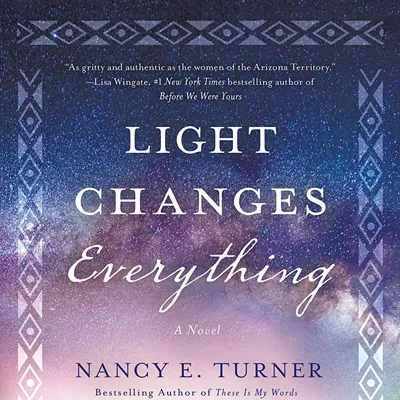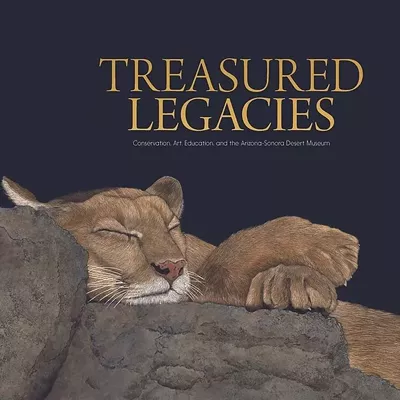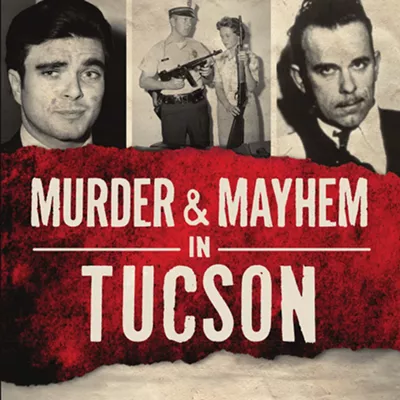love will pick up women and carry them along
Communication Is Key
BY JULIA RAMEY, mailbag@tucsonweekly.com
It's easy to look at men and think they're idiots."
This line, which both opens and closes Laura Fitzgerald's new novel One True Theory of Love, is not promising. Indeed, it seems at first that we're at risk of getting caught up in a Lifetime made-for-TV movie about how much men suck; Meg Clark's personal history, which she quickly recounts, seems to have all the telltale signs. She's a single mom whose jerk of an ex-husband left her while she was pregnant. She struggles to make ends meet as a kindergarten teacher. She enjoys bubble baths, Mozart and chats with her sister.
Fortunately, the book doesn't go the angry-victim-finds-herself route, as we quickly realize that Meg has already found herself, and is vastly more complex than her lingering anger makes it seem. She's scarred, sure, but she's also spunky, thoughtful and bold. She is no-nonsense, intelligent and fiercely devoted to her 9-year-old son, Henry, who chronically misbehaves, but possesses an emotional intelligence beyond his years. So when Meg and Henry stroll into a café and meet Ahmed, a half-Iranian, devastatingly handsome city employee, Meg's first instinct is to turn away and retreat from the possibility of getting hurt again. But her best traits--and Fitzgerald's notable talent--come out as she decides to allow this stranger into her carefully guarded life.
Meg tiptoes into a relationship with Ahmed, who's so anxious to get the wheels turning that he hires a private detective to do a background check on himself so Meg can be sure that he's clean. The book zips along as Meg and Ahmed fall in love; Henry, too, becomes smitten with the considerate, generous interloper who takes him for ice cream and coaches his soccer team.
Then Meg's ex-husband, Jonathan, comes back into the picture after 10 years without so much as a phone call, threatening everything. At the same time, Meg's parents split up. Her sister betrays her, as does her father. As these events begin to spiral around her, Meg retreats into her usual protective stance, forsaking the young romance she's forged with Ahmed.
In doing this, though, Meg immediately finds out that trying too hard to keep love in check comes with some serious risks. Trying to maintain control, she keeps some important secrets from Ahmed, who eventually finds them out--as people always do--and reacts poorly. There's a good deal of irrational behavior on both Meg's part and on Ahmed's, and even on the part of Henry, who grows more and more desperate to see his mother's new relationship work. This behavior seems frustrating and at times ridiculous--until you remember it's exactly the same way we all behave after we've loved and gotten hurt. This is One True Theory of Love's best attribute: It's a very honest story, one that's been told before, sure, but one to which we can all relate over and over again.
So it's no Lifetime fodder, but Fitzgerald's book isn't quite Jane Austen, either. It's predictable at times, trite at others, and should under no circumstances be given to a man as a gift. (He won't take the hint.) Still, it's an engaging read that's tough to put down, and it's hitting bookshelves at the perfect moment: the time of year when you want to be on a blanket, in a park, daydreaming in the sunlight--and perhaps scoping the crowd for handsome young men.
Tucsonans will be pleased to know that the city is an integral part of the book: On their first date, Meg and Ahmed head to Frog and Firkin; when Meg needs to forget about the world, she goes on a long hike in Sabino Canyon. She gripes about the heat and the lack of sidewalks, and struggles to help impoverished children that attend her school. Fitzgerald has a talent for conveying intimacy, and Meg's relationship with Tucson is just as central to the narrative as her relationship with Ahmed.
At its heart, One True Theory of Love is not about betrayal. It's about communication, specifically the secrets we keep and the way we convince ourselves that those secrets are sustaining us, since they allow us to maintain a controlled view of our lives. Heavy stuff, sure, but Fitzgerald writes in her acknowledgments that writing the book was not a long or lonely process, as it usually is--and you can tell. The book seems to pick you up and carry you right along, even if it's an occasional let-down to realize that you've made many of Meg Clark's mistakes yourself.







